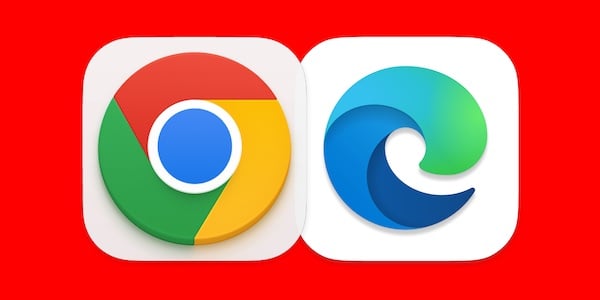Urgent Update: Chrome, Edge, Brave browsers patch zero-day vulnerability
Posted on
by
Joshua Long

Update: Google announced a second actively exploited vulnerability just five days later; see Intego’s coverage of it.
On Friday, April 14, Google and Microsoft released patches for their Chrome and Edge browsers to address a zero-day vulnerability that has been actively exploited in the wild.
Vivaldi also updated its browser on Friday. Brave updated its browser the following day, on Saturday, April 15.
Google says that it “is aware that an exploit for CVE-2023-2033 exists in the wild.” This means that patches need to be installed urgently. This particular vulnerability exists in Chromium’s V8 engine.
Chrome, Edge, Brave, and Vivaldi are all based on the Chromium open-source Web browser project. Other Chromium-based browsers may need updates as well.
Opera, another well-known Chromium-based browser, had not yet released a security update as of the time this article was published. The vulnerability presumably impacts Opera as well, so an update may be forthcoming this week. Opera usually releases weekly updates on either Wednesday or Thursday. Update: Opera finally released a patch on Tuesday, April 18—four days after Google, Microsoft, and Vivaldi fixed the vulnerability.
Thanks! 4 days late, but good to know.
— Josh Long (the JoshMeister) (@theJoshMeister) April 20, 2023
But how many days will it take Opera to patch the (also known to be exploited in the wild) CVE-2023-2136? All the other mentioned browsers already patched it today; Opera is again the odd one out.
How to update Chromium-based desktop browsers
Mac users can update their Chrome, Edge, or Brave browsers by clicking on the application menu (e.g. “Chrome” or “Microsoft Edge,” next to the Apple logo menu), and then clicking the first item in that menu (e.g. “About Google Chrome” or “About Microsoft Edge”). The browser will check for updates, and if an update is available, it will prompt you to restart the app to complete the update.
When an Opera update for macOS is released, the process will be the same as the other browsers above.
Vivaldi for macOS has a slightly different update procedure. After clicking on the Vivaldi menu (next to the Apple menu), click on “Check for Updates…” to ensure you have the latest version installed.
Windows users can update their browsers by following the steps provided by each browser maker: Chrome, Edge, Brave, Vivaldi, Opera.
How to update Chromium-based mobile browsers
Android users should check the Google Play Store app to receive the latest versions of browsers and other apps.
Mobile browsers on iOS and iPadOS use Safari’s WebKit engine, rather than Chromium’s Blink and V8 engines. Therefore, this particular vulnerability does not affect the iOS or iPadOS versions of any Web browsers. If you would like to update your iPhone and iPad browsers anyway, you can do so via the App Store. (Here’s how to manually check for and install updates.) Note that Vivaldi is not yet available for iOS.
How can I learn more?
 Each week on the Intego Mac Podcast, Intego’s Mac security experts discuss the latest Apple news, including security and privacy stories, and offer practical advice on getting the most out of your Apple devices. Be sure to follow the podcast to make sure you don’t miss any episodes.
Each week on the Intego Mac Podcast, Intego’s Mac security experts discuss the latest Apple news, including security and privacy stories, and offer practical advice on getting the most out of your Apple devices. Be sure to follow the podcast to make sure you don’t miss any episodes.
You can also subscribe to our e-mail newsletter and keep an eye here on The Mac Security Blog for the latest Apple security and privacy news. And don’t forget to follow Intego on your favorite social media channels: ![]()
![]()
![]()
![]()
![]()
![]()
![]()